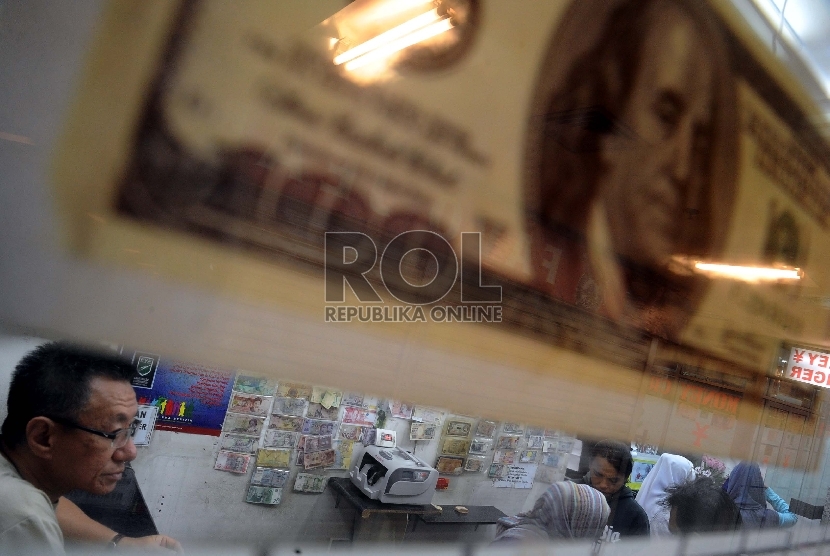REPUBLIKA.CO.ID, JAKARTA -- The national currency rupiah regained some of its lost value against the U.S. dollar closing at the level of 14,127 per U.S dollar from the level of 14,187 earlier. The U.S. dollar lost its momentum to climb higher after the minutes of the Federal Open Market Committee (FOMC) are considered dovish, chief researcher of Monex Investindo Futures Ariston Tjendra said.
Ariston said the minutes of FOMC showed that most of the policy makers said about the possibility that the next increase in fund rate would be in line with the market expectation, but the Fed will also tolerate inflation rate.
"That showed that the Fed would not be in a hurry to raise its fund rate," he said.
Analyst of PT Valbury Asia Futures, Lukman Leong said strong market expectation of the national economy this year was one of the factors propping up rupiah. "Despite the rise in the Bnak Indonesia benchmark interest rate, but the market is still optimistic Indonesia's economy would grow more than 5 percent," Lukman said.
Meanwhile, newly inaugurated Central Bank Indonesia (BI) Governor Perry Warjiyo stated here on Thursday that he would intervene in the market and take early measures to maintain stability, amid the weakening of the rupiah. After taking oath at the Supreme Court's Building in Jakarta, Thursday, he reaffirmed his commitment of seeking stronger monetary measures in order to anticipate external pressures.
"Our top priorities are to launch pre-emptive, front-loading, and ahead-of-the-curve measures to maintain the interest rate," Warjiyo, who previously served as the Central Bank's deputy governor, said.
Besides early policies, Warjiyo is also seeking to intervene in the foreign exchange and government's debt papers (SBN) markets. "The interventions are aimed at maintaining stability of the rupiah exchange rate in the market," he stressed.
The new BI governor, who has long campaigned on pro-growth and stability, believed that foreign capital in the country still relies on actions taken by the US Federal Reserves (the Fed). He further predicted that the Fed policymakers would raise the interest rates four times this year. This action, Warjiyo explained, is an indication of a stronger US economy, compared to the previous years.
Warjiyo admitted that BI's prediction on the US Treasure obligations was by 2.7 percent, while this year, the figure has reached three percent.
Hence, in order to ease its weakening and ensure the liquidity of the Rupiah, as well as foreign exchange, Warjiyo has planned to deepen the capital market. From January to May, the BI has allocated Rp50 trillion in the SBN market. This measure is aimed at easing the tension that is triggered by capital outflow.
"Besides these actions, I will contact our counterparts at the Financial Services Authority (OJK) and the banks to clarify the false perception (about our economy's current state)," he noted.
The BI's "7-Days Reverse Repo" Rate has increased by 0.25 percent to 4.50 percent this month, after the Central Bank held the rate at 4.25 percent for the last nine months.


